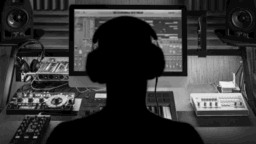The three major labels are either currently in, or about to begin, new licensing negotiations with YouTube, the terms of which could be set for big change. But what they’re aiming to achieve won’t be easy.
Yesterday, the IFPI revealed its annual Global Music Report 2016, which included lots of positive figures – most notably that global music revenues were up 3.2% in 2015.
However, these were seemingly spoiled by the so-called ‘value gap’ that exists as a result of a boom in music consumption, without an accompanying boom in revenues.
In the cross-hairs: YouTube.
Because of so-called “safe harbour” rules cemented by laws – such as the DMCA in the US and similar legislation in the EU – the platform can ultimately avoid legal responsibility for copyright infringement on its service. Critics suggest that, amongst many other flaws, this leads to a disparity in negotiations with rights-holders, and allows YouTube to monetise reams of illegal content without fear of penalty.
However, pressure is now building against “safe harbour”: in Europe, rules could be revised this summer when legislative proposals from the EC are expected. Over in the US, artists such as Katy Perry and Deadmau5 have lent their name to calls to revise the near-20 year old DMCA legislation.
At a press conference in London yesterday, IFPI Chief Executive Frances Moore (pictured, right) said she’d like to see the service take “proper licenses” like those agreed with Spotify and Deezer – and it was a point of view shared by the biggest players in the market.
Sony Music Chairman and CEO, International, Edgar Berger (pictured, centre) said: “We don’t want anyone to claim being protected by safe harbours once they monetise and distribute music.”
“We don’t want anyone to claim being protected by safe harbours once they monetise and distribute music.”
Edgar Berger, Sony Music
Berger spoke of the “biggest group of music consumers, the 900 million music fans that use user-upload services, who generate $630m for the global music industry each year”, but who provided just 4% of industry revenues in 2015.
In contrast, 68m paying subscribers are signed up to the likes of Spotify, Deezer and Apple Music, generating $2 billion a year in revenue.
Berger celebrated these paying users, commenting: “The music industry has successfully emerged from digital disruption and the future is bright. We are growing and we are poised to reach new heights,”
The majors point out that if those 900m+ users monetised in much the same way as the 68m subscribers, which would see the music industry pocket an extra $26bn a year, increasing its annual global revenue to over $40bn.
That’s in an ideal world where everyone is willing to pay for a monthly music streaming subscription, of course. But even if you halve that figure to $13bn and add it to the $15bn the global music industry totaled in 2015, you’d still almost double the industry’s current size.
At the IFPI launch, Michael Nash, EVP of Digital Strategy for UMG (pictured, left), discussed a future dependent on the convergence of media and technology, and spoke positively of SoundCloud; another platform that’s caused years of ire but has been recently licensed, providing some hints to the kind of co-operation Universal might like to see from YouTube.
SoundCloud represents an opportunity to “partner with the service to make a decision at the artist level with our labels and understand how to develop artists, how to market and promote the artist, what content should be available in the free tier in relationship with what’s behind the paywall,” said Nash.
“We’ll be working to adjust that formulation over time as we learn and as consumption data helps us understand what’s the right thing to do for a given artist in a given genre at a given point in their career,” he added.
“I think we’re at an early stage of trying to determine with our partners what really works in terms of free, ad-supported, discovery-driving content presentation in relation to the higher value subscription model with content behind a paywall.”
And Warner‘s CEO of international and global commercial services Stu Bergen – whose speech you can read in full through here – said: “The music industry is performing below its potential,” warned Berger. “Music consumption is soaring, but the revenues returning to artists and rights holders are not.
“The reason is a distortion of the market. It’s not only fair to take action. It’s also desperately needed to secure sustainable growth.”
The major’s dream scenario: a new YouTube that pushed 70% of its revenues from music (the same Spotify claims to pay back) to rightsholders.
The majors would surely also love to be offered a stake in the Google-owned platform, as they already have – Warner aside – in Vevo.
That’s not looking likely according to YouTube’s most recent statements.
In March, it was upset by comparisons the RIAA drew between it and “other audio-only subscription music services,” which was, they said, like comparing “apples to oranges.”
That’s clearly not the opinion of the majors, who see YouTube for what it is; a platform that monetises and distributes music.
“Soundcloud [represents an opportunity] to partner with the service to make a decision at the artist level with our labels… and what content should be available in the free tier in a relationship with what’s behind the paywall.”
Michael Nash, Universal Music
YouTube is said to be relying heavily on the potential growth of the ad market worldwide to deflect negotiations that could see it turn into a fully licensed music service, giving a much larger portion of its annual revenue away.
Will those execs tasked with negotiations change their minds when faced with the risk of losing content? Or is Google just too big to care?
[Picture: Gideon Gottfried]
Music Business Worldwide




